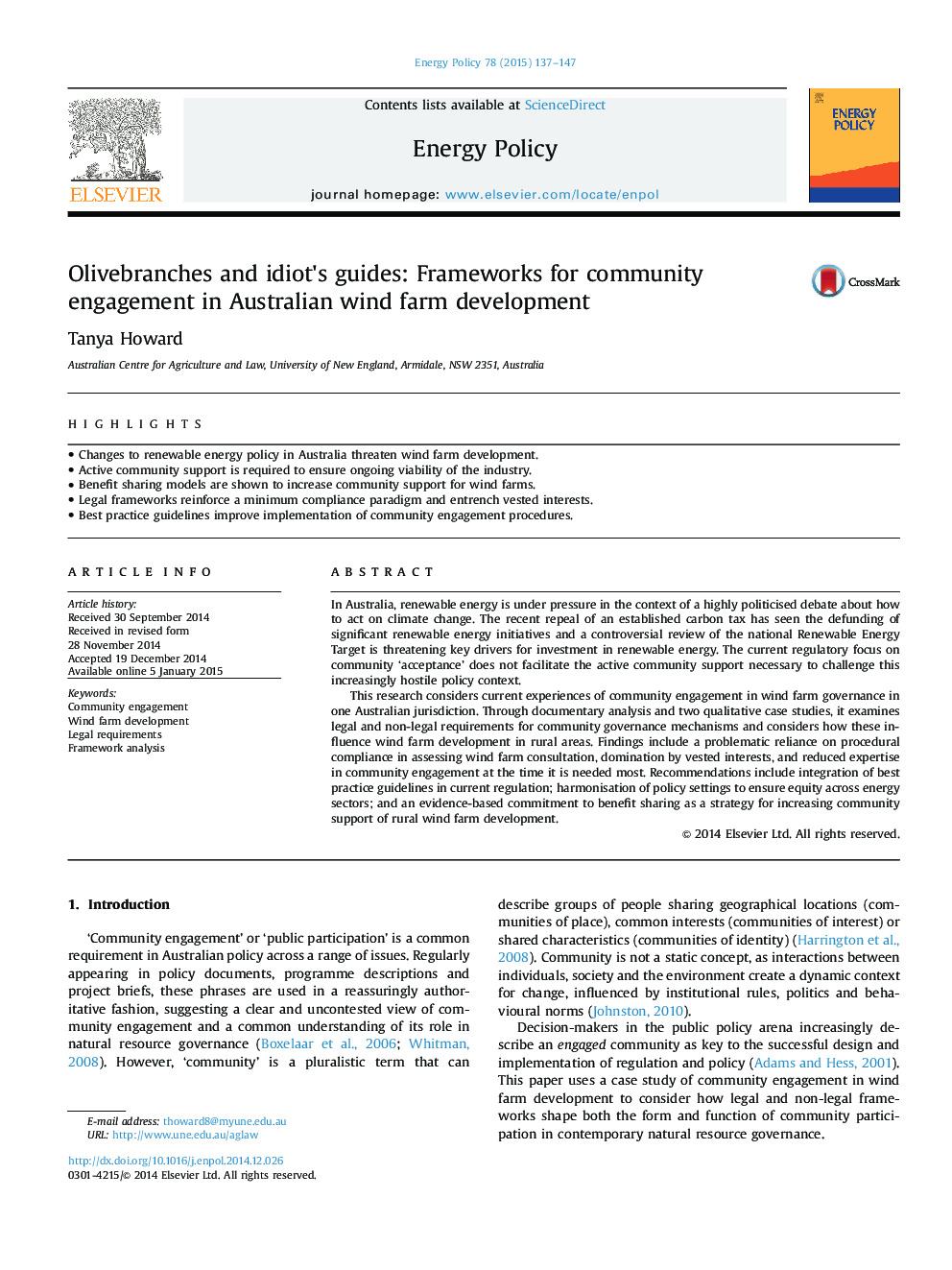| Article ID | Journal | Published Year | Pages | File Type |
|---|---|---|---|---|
| 995458 | Energy Policy | 2015 | 11 Pages |
•Changes to renewable energy policy in Australia threaten wind farm development.•Active community support is required to ensure ongoing viability of the industry.•Benefit sharing models are shown to increase community support for wind farms.•Legal frameworks reinforce a minimum compliance paradigm and entrench vested interests.•Best practice guidelines improve implementation of community engagement procedures.
In Australia, renewable energy is under pressure in the context of a highly politicised debate about how to act on climate change. The recent repeal of an established carbon tax has seen the defunding of significant renewable energy initiatives and a controversial review of the national Renewable Energy Target is threatening key drivers for investment in renewable energy. The current regulatory focus on community ‘acceptance’ does not facilitate the active community support necessary to challenge this increasingly hostile policy context.This research considers current experiences of community engagement in wind farm governance in one Australian jurisdiction. Through documentary analysis and two qualitative case studies, it examines legal and non-legal requirements for community governance mechanisms and considers how these influence wind farm development in rural areas. Findings include a problematic reliance on procedural compliance in assessing wind farm consultation, domination by vested interests, and reduced expertise in community engagement at the time it is needed most. Recommendations include integration of best practice guidelines in current regulation; harmonisation of policy settings to ensure equity across energy sectors; and an evidence-based commitment to benefit sharing as a strategy for increasing community support of rural wind farm development.
